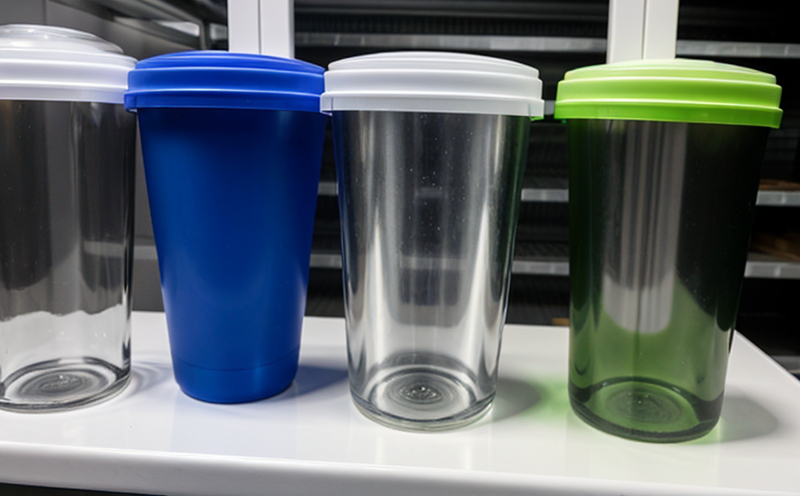ISO 8330-4 Surface Imperfection Grading
The ISO 8330 series of standards provides a comprehensive framework for the testing and grading of glass packaging surfaces, ensuring that products meet stringent quality control criteria. This service focuses specifically on ISO 8330-4, which deals with surface imperfection grading in glass containers.
As quality managers and compliance officers navigate the complexities of ensuring product integrity and safety, understanding the nuances of this standard is crucial. The ISO 8330 series is widely recognized for its detailed specifications on how to inspect glass surfaces for defects such as scratches, pits, bubbles, and other imperfections.
For R&D engineers, this service offers insights into the latest testing protocols that can help improve product design and manufacturing processes. By adhering to ISO 8330-4 standards during development stages, companies can ensure their products meet international quality benchmarks, thereby reducing risks associated with non-compliance or rework.
Procurement teams benefit greatly from this service as they can verify supplier compliance more effectively by referencing these internationally accepted guidelines. Proper implementation of ISO 8330-4 ensures that all glass packaging components are free from defects that could affect product performance or consumer safety.
The process begins with thorough specimen preparation, where each container is carefully examined under controlled lighting conditions to identify any surface imperfections according to predefined criteria outlined in the standard. Specialized equipment such as microscopes and light boxes are used to capture high-resolution images of potential defects for accurate grading.
Once identified, these imperfections are classified into categories based on their severity, size, location, and type. This classification system allows manufacturers to prioritize corrective actions aimed at eliminating recurring issues or improving overall production efficiency. Reporting is done through detailed documentation that includes photographs, sketches, and descriptions of each defect observed during testing.
Understanding the significance of ISO 8330-4 extends beyond just technical aspects; it also plays a role in maintaining public trust by demonstrating commitment to producing safe and reliable products. Consumers increasingly demand transparency regarding manufacturing practices, making adherence to international standards like ISO 8330-4 an essential step towards building brand reputation.
By leveraging this service, businesses can enhance their competitive edge by ensuring they meet or exceed industry expectations for glass packaging quality. This not only contributes positively to corporate image but also supports broader sustainability goals by minimizing waste and promoting efficient use of resources throughout the supply chain.
Applied Standards
| Standard Number | Description |
|---|---|
| ISO 8330-4:2019 | Surface imperfection grading of glass containers. |
International Acceptance and Recognition
The ISO 8330 series has gained widespread acceptance across various industries due to its rigorous methodology for evaluating glass surfaces. Its use is not limited to just one sector but spans multiple fields including pharmaceuticals, food and beverage manufacturing, cosmetics, and more.
In the pharmaceutical industry, ensuring that glass containers used in drug packaging are free from imperfections is critical for maintaining product integrity and preventing contamination. Compliance with ISO 8330-4 helps manufacturers adhere to Good Manufacturing Practices (GMP), which are essential for safeguarding public health.
The food and beverage sector also places high importance on glass packaging quality, especially when dealing with products that require clear visibility of contents or those intended for direct consumption. By following ISO 8330-4 guidelines, companies can enhance their reputation as providers of safe and hygienic packaging solutions.
For the cosmetics industry, where appearance is paramount, adherence to these standards ensures that glass containers maintain aesthetic appeal while still meeting stringent quality requirements. This dual focus on both form and function makes ISO 8330-4 an indispensable tool for cosmetic manufacturers aiming to meet customer expectations globally.
The global recognition of ISO 8330 series standards underscores their value as a benchmark for excellence in glass packaging testing worldwide. Whether you're operating within one country or expanding internationally, adopting these standards demonstrates your commitment to maintaining consistent and high-quality products.
Environmental and Sustainability Contributions
The implementation of ISO 8330-4 surface imperfection grading contributes significantly to environmental sustainability by promoting efficient resource utilization. By reducing the number of defective containers produced, businesses can minimize waste generation during manufacturing processes.
This standard encourages manufacturers to adopt better practices throughout their operations, from raw material selection and processing methods to final product finishing steps. Such measures help reduce energy consumption and emissions associated with producing substandard items that would eventually end up as landfill waste.
Furthermore, by ensuring glass containers are free from imperfections before they reach consumers, businesses contribute towards reducing the demand for replacement products caused by defective packaging. This reduction in waste not only saves resources but also supports recycling efforts, fostering a circular economy approach to manufacturing.
The use of ISO 8330-4 standards aligns with broader sustainability goals set forth by organizations like the United Nations Environment Programme (UNEP). By embracing these internationally recognized guidelines, companies can play their part in promoting sustainable development practices across industries.





